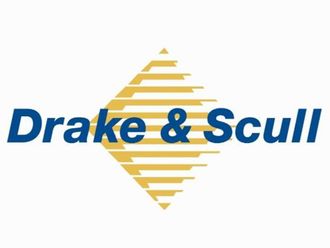
Dubai: The UAE's mortgage marketplace has picked up a beat or two in recent weeks, but refinancing deals are still out of the reach of the property owners. In an ideal world, refinancing allows these buyers to alternate between lenders and at highly competitive rates.
But the local mortgage marketplace is yet to reach that ideal state. With property values still subdued from a broader perspective, refinancing does not offer much scope for the lenders, according to a senior banking official.
"With property values having dropped from their earlier highs, the current loan to value ratio on these would be 100 or 110 per cent as against the 75 or 80 it was at the time of the deal being struck," said Sundar Parthasarathy, executive vice-president and head of consumer assets at Abu Dhabi Commercial Bank. "In these circumstances, it's impossible for banks to engage in refinancing offers. The rationale is not there."
Property values have seen improvements only in select freehold pockets of the city and that applies to the original upscale environments such as Emirates Living, Green Community, The Villa Project and the Palm. It is no mere coincidence that all these developments offer premium villas and townhouses.
Impact
According to market sources, other reasons could have an impact on refinancing deals. "Most banks put a repayment charges on clients moving the mortgage to a different lender," said Sam Wani, general manager of Independent Finance, a consultancy.
"Yes, it will change. Over time banks will promote short-term mortgage deals of one to five years and remove the penalties. "Re-mortgaging", as it is commonly known in the UK, will help clients look for better mortgage deals and banks will be able to re-deploy funds more efficiently."
There is a steady flow of new properties getting completed and delivered. For the many mortgage providers, existing and the more recent entrants, this is what gives them the expectation of expanding their disbursal portfolio. Some aggressive intent has also entered on the pricing side with rates dropping below the psychologically crucial 5 per cent mark.
The key criteria for a mortgage provider to get interested are that the project should be completed, registered with the Land Department and have a title deed on it. Even with all this in place a good deal of caution still underscores the lenders decisions.
Lending
"While they are more comfortable lending on established developments, they also acknowledge that once the property is completed and mortgage can be registered in the Land Department, there is minimal risk," said Tom Smith, executive vice-president and head of retail banking, United Arab Bank.
"The current interest rate environment has meant banks can offer more attractive rates which increased affordability for the customer. At the same time it reduces the risk for banks as current market value on select developments is realistic and has shown signs of stability."
Transaction: Property collateral
That mortgage lenders can use property as collateral works to the advantage of both parties involved in the transaction.
"Homeowners have a clearer idea now than before of where the market is heading," said Sam Wani of Independent Finance. "Banks too have been able to work through their mortgage books and know where they stand.
"The Mortgage Law has been tried and tested and helping credit underwriters carry out their decision making. And the universal home truths still apply when it comes to buying property now.
"A prospective homebuyer looking to raise a mortgage has to look at the way his income is structured, the industry he is operating in, how long he is looking to retain the property, how much he has saved up for a down payment and what his budget for repayments is," Wani added.
"Most importantly he has to be sure that he will be able to make repayments on all his liabilities.












